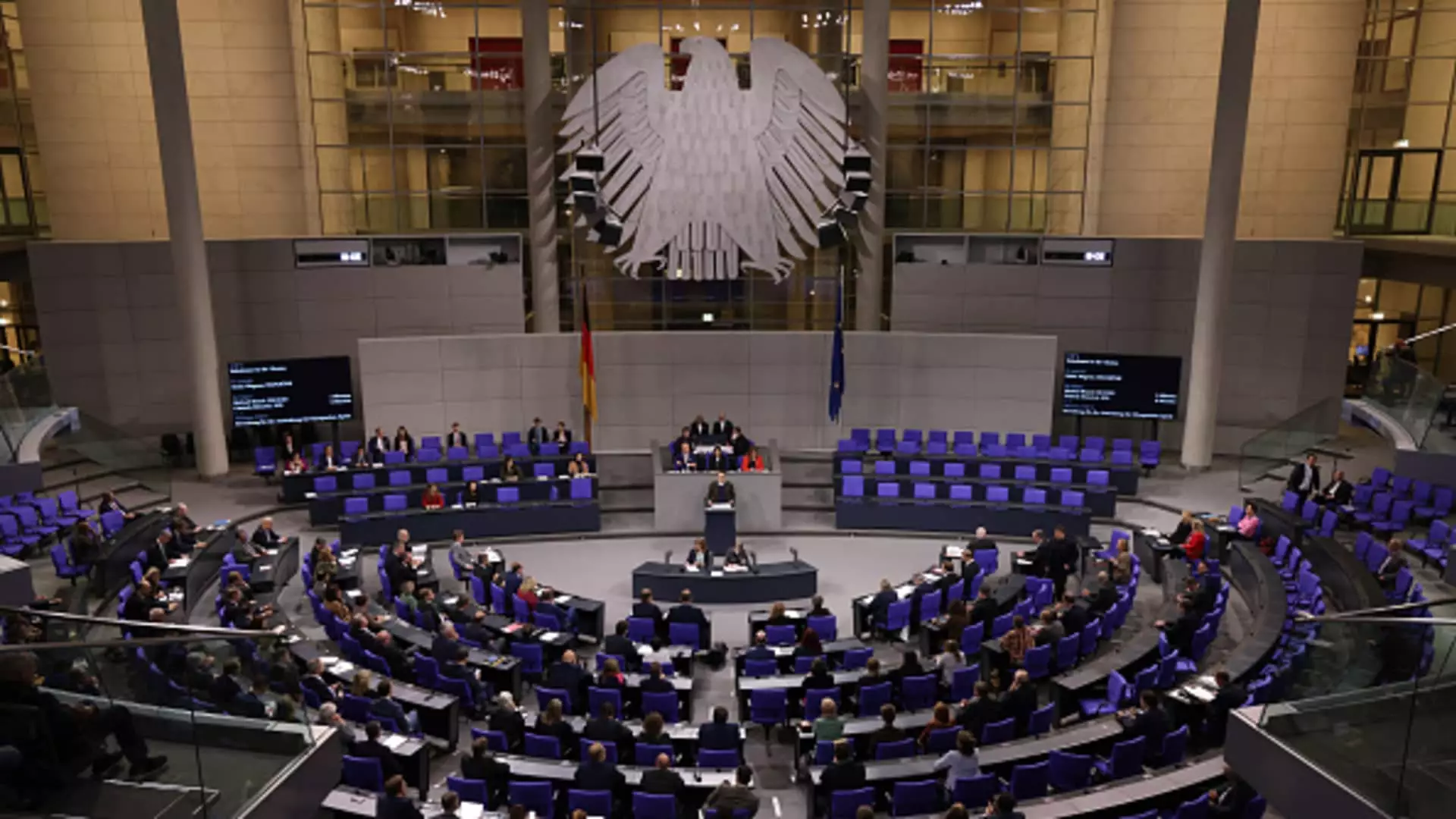The political landscape in Germany is undergoing significant upheaval, as President Frank-Walter Steinmeier took a decisive step by dissolving the lower house of parliament on Friday. This move sets the stage for snap elections scheduled for February 23, following the collapse of Chancellor Olaf Scholz’s coalition government, which comprised three parties. Steinmeier articulated the necessity of a stable and action-oriented government, emphasizing that current times demand reliable parliamentary majorities to address the nation’s pressing issues.
The resignation of Scholz’s coalition was precipitated by a no-confidence vote triggered by the withdrawal of Finance Minister Christian Lindner’s Free Democrats from the alliance. This fragmentation has left the Chancellor in a precarious position, as he now leads a caretaker government. Such instability raises concerns about governance during a transitional period, leaving voters wondering about the capacity of the potential new administration to tackle crucial societal challenges.
In light of the upcoming elections, President Steinmeier underscored the importance of a fair and transparent electoral process. His remarks highlighted the dangers posed by external influences on democracy, referencing recent events in Romania as well as the pervasive tactics employed on social media platforms like X (formerly Twitter). The president’s call for integrity in campaigning resonates deeply in an age where misinformation can easily sway public opinion and undermine trust in democratic institutions.
The demand for transparency echoes the growing public dissatisfaction with how elections are conducted in many parts of the world. Voters deserve the assurance that their choices are made free from undue influence or manipulation. As the political air thickens with the anticipation of the elections, the importance of safeguarding the democratic process remains paramount.
The Rise of Opposition Forces
As Germany approaches the elections, the anticipated power shift is palpable. Conservative challenger Friedrich Merz is capitalizing on dissatisfaction with Scholz’s administration, advocating for a reduction in regulations which he argues have stifled growth. Polls suggest the conservatives hold a significant lead over the Social Democrats (SPD), which may indicate a substantial shift in voter sentiment.
Interestingly, the far-right Alternative for Germany (AfD) is making notable gains, overtaking the SPD in some polls. This rise adds complexity to the political landscape, complicating potential coalitions and contributing to an environment of uncertainty. The mainstream parties’ reluctance to collaborate with the AfD raises questions about the viability of future governing partnerships and reflects a deeper societal divide.
As Germany gears up for a politically charged period, the call for unity and effective governance grows ever more crucial. The perceived failure of the recent coalition government has left constituents yearning for leaders who can provide solutions rather than exacerbate divisions. Steinmeier’s emphasis on returning problem-solving to the forefront of politics reinforces the idea that voters want representatives focused on pragmatic governance and meaningful dialogue.
The coming elections will not only dictate the immediate political future of Germany but may also set the tone for broader European trends in governance, accountability, and public trust. As citizens prepare to cast their votes, their choices will undoubtedly shape the landscape of German politics for years to come, underscoring the critical intersection of democracy, stability, and civic engagement.


Leave a Reply